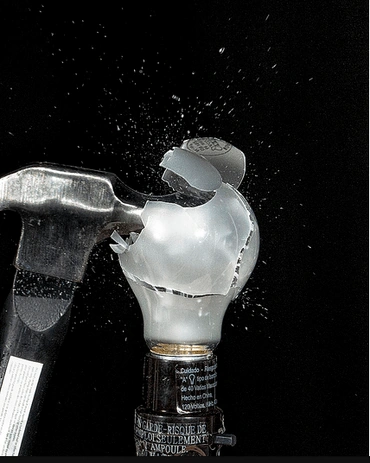Break

To “break” something creates an image that is different from “attacking,” “destroying,” or “shattering.” It is less emotional and violent in its intent; it is somewhat matter-of-fact. It is fitting, then, that “break” is used in the Bible primarily to illustrate the Lord’s destruction of evil desires and false ideas – something that must be done to preserve us from harm, but not something done with malice.
Arcana Coelestia #3009
3009. As to the second point - that Messiah, Anointed, or King is the same as Divine Truth - this is clear from very many places in the Word, and has been shown frequently in explanations; as in 1672, 1728, 2015, 2069. The Lord Himself also teaches the same in John,
Pilate said to Jesus, Are you not then a king? Jesus answered, You say it, because I am a King. For this I was born, and for this I have come into the world, to bear witness to the truth. Everyone who is of the truth hears My voice. John 18:37.
From this it is clear that the Divine Truth itself is at the root of the Lord's being called 'the King'. The reason why kings were anointed and consequently called the anointed was that 'the oil' with which they were anointed meant good, 886, 2832. Also the truth, meant by 'king', was derived from good and was accordingly truth grounded in good, so that the kingly office with them represented the Lord as regards Divine Truth which is derived from Divine Good, and so represented the Divine marriage of good within truth, whereas the priestly function represented the Divine marriage of truth within good. The latter is meant by Jesus, the former by Christ.






